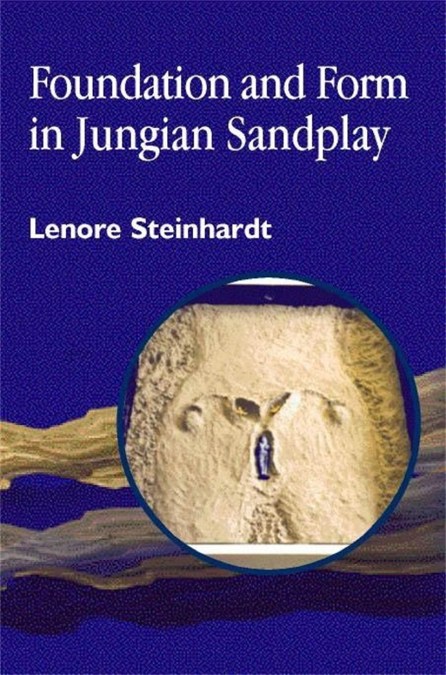Foundation and Form in Jungian Sandplay
On sale
1st April 2000
Price: £40
Genre
This book outlines the history of art therapy originating as an adjunct therapy in psychiatry, education and corrections, and the history of sandplay therapy as a development in the Jungian tradition of psychoanalysis. The writer makes clear connections between art therapy and sandplay and clear links with Jungian theory. The style is clear and accessible, and gives a good introduction to sandplay for those wanting one. The chosen case studies illustrate the points she is making well, and provide a clear view of her approach. The book is of immediate interest to art therapists wishing to work with sandplay. It would also be of interest and relevance to dramatherapists who see the dramatic potential in sandplay work and need some guidance to make a start with this.’
– Dramatherapy
Lenore Steinhardt presents sandplay therapy in an art therapy setting. She begins by outlining the principles and practicalities of sandplay therapy and explaining the importance of the specifically blue tray and other materials used. She provides a history of art therapy and sandplay therapy, and the previous literature and thinking in these fields. While other books have focused on the significance of the miniature objects used in sandplay, the author concentrates on the self-created sand form. From this exciting new perspective, she emphasizes the importance of the physical contact with ancient natural elements – sand and water – arguing that the value of sandplay therapy lies in the balance of natural, cultural and manufactured elements as this reflects the balance we aim for in everyday life. The focus on the visual and formative is backed up by photographs and detailed case studies.
This book will be essential reading for anyone interested in sandplay as it provides a comprehensive overview of its history and theory as well as accessible examples and case studies. It also looks at sandplay therapy from an important new perspective and successfully bridges the gap between art therapy and sandplay.
– Dramatherapy
Lenore Steinhardt presents sandplay therapy in an art therapy setting. She begins by outlining the principles and practicalities of sandplay therapy and explaining the importance of the specifically blue tray and other materials used. She provides a history of art therapy and sandplay therapy, and the previous literature and thinking in these fields. While other books have focused on the significance of the miniature objects used in sandplay, the author concentrates on the self-created sand form. From this exciting new perspective, she emphasizes the importance of the physical contact with ancient natural elements – sand and water – arguing that the value of sandplay therapy lies in the balance of natural, cultural and manufactured elements as this reflects the balance we aim for in everyday life. The focus on the visual and formative is backed up by photographs and detailed case studies.
This book will be essential reading for anyone interested in sandplay as it provides a comprehensive overview of its history and theory as well as accessible examples and case studies. It also looks at sandplay therapy from an important new perspective and successfully bridges the gap between art therapy and sandplay.
Newsletter Signup
By clicking ‘Sign Up,’ I acknowledge that I have read and agree to Hachette Book Group’s Privacy Policy and Terms of Use

